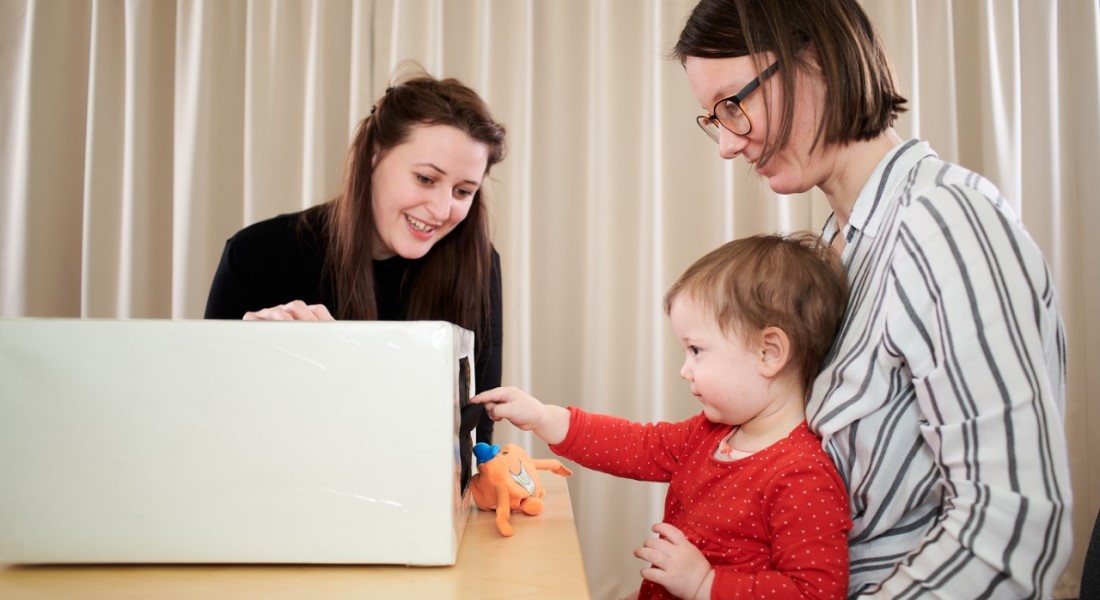New research shows how babies’ behavior is influenced by those around them
Young infants’ search for potential hidden objects is influenced by how many objects another person believes to be hidden, according to a new study. The study showing infants’ ultra-social behavior was conducted by researchers from the Department of Psychology at the University of Copenhagen and from Central European University.

Humans are super-social by nature and our daily behavior is strongly influenced by the beliefs of others. This is not only the case among adults. Young infants may show even stronger social traits in this respect, a new study published at the end of 2021 in the journal ‘Open Mind: Discoveries in Cognitive Science’ concludes.
The researchers developed a task where infants were presented with an opaque box and saw some objects hidden there. If the infants saw all objects being taken out, they would search less for remaining ones, compared to when one object remained in the box. The novel finding of the study was that infants continued to search if another person believed one object remained – even if the person was wrong, not saying anything, and the infants were still believing the box was empty.
According to the researchers, Agnes Melinda Kovacs from Central European University (CEU) and Dora Kampis from the University of Copenhagen, the results reflect an important feature of human cognition that may be particularly strong in infancy:
To learn important knowledge about the world, it is beneficial to rely on other people’s knowledge and perspectives. In very young infants, this reliance on others’ perspective may be so strong that it leads to such ‘mistakes’. The strong sensitivity to their social world may play a crucial role in how infants become knowledgeable members of their cultural environment.
Contact
Postdoc Dora Kampis
Centre for Early Childhood Cognition
Department of Psychology
E-mail: dk@psy.ku.dk
Phone: +45 35 33 39 85
